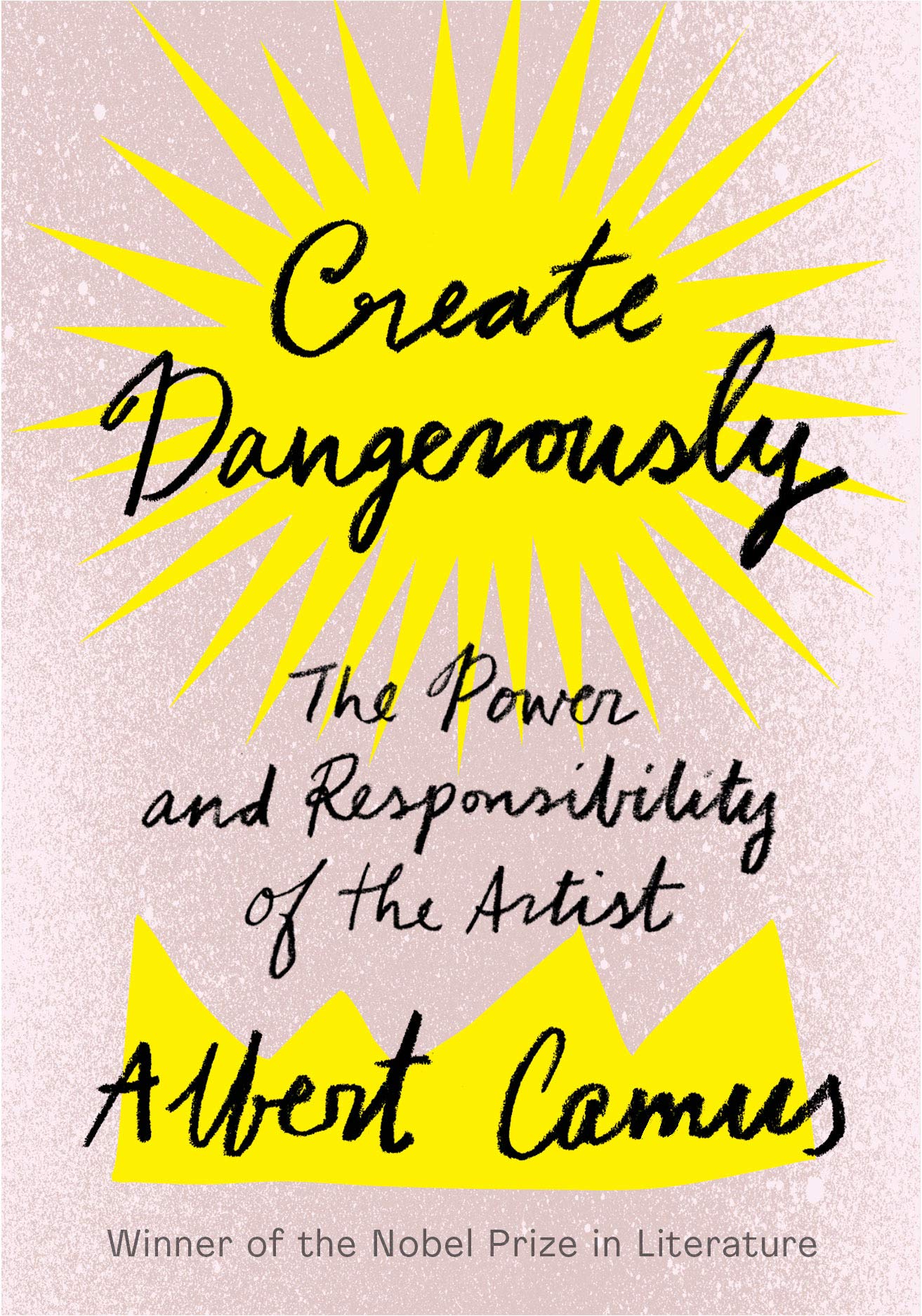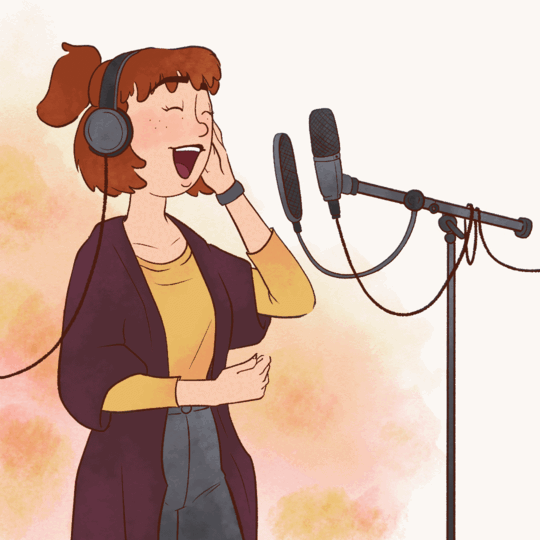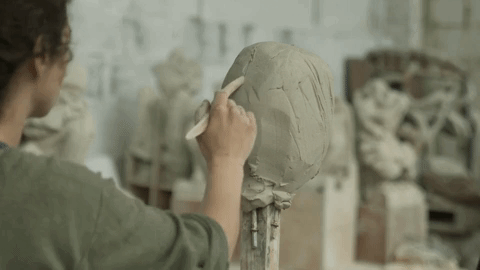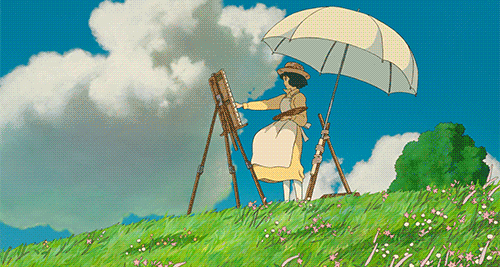Poucas semanas depois de receber o Nobel, Camus deu uma palestra na Universidade de Uppsala, Suécia, sob o título "L’Artiste et Son Temps", que seria traduzida para inglês como "Create Dangerously", e que nos fala de ambas as coisas, do momento na história em que Camus olhava para si como artista, assim como das suas responsabilidades e do seu impacto. O texto, pela sua dureza, acaba sendo algo reducionista, mas faz parte do ativismo, que não se faz sem intolerância, que não depende de consentimento porque busca a defesa de valores universais.
O texto lê-se hoje como algo ultrapassado, porque se percebemos o valor da arte e dos artistas, nem por isso nos quedamos apenas à espera da sua intervenção. Hoje muitos mais têm voz, e por isso não é apenas o artista que precisa de de criar perigosamente, somos todos nós que não nos podemos abster, nunca.
Ficam alguns excertos do texto original em francês:
"Au milieu de ce vacarme, l’écrivain ne peut plus espérer se tenir à l’écart pour poursuivre les réflexions et les images qui lui sont chères. Jusqu’à présent, et tant bien que mal, l’abstention a toujours été possible dans l’histoire. Celui qui n’approuvait pas, il pouvait souvent se taire, ou parler d’autre chose. Aujourd’hui, tout est changé, le silence même prend un sens redoutable. À partir du moment où l’abstention elle-même est considérée comme un choix, puni ou loué comme tel, l’artiste, qu’il le veuille ou non, est embarqué. Embarqué me paraît ici plus juste qu’engagé. Il ne s’agit pas en effet pour l’artiste d’un engagement volontaire, mais plutôt d’un service militaire obligatoire. Tout artiste aujourd’hui est embarqué dans la galère de son temps. Il doit s’y résigner, même s’il juge que cette galère sent le hareng, que les gardes-chiourme y sont vraiment trop nombreux et que, de surcroît, le cap est mal pris. Nous sommes en pleine mer. L’artiste, comme les autres, doit ramer à son tour, sans mourir, s’il le peut, c’est-à-dire en continuant de vivre et de créer."
"De quoi parlerait-il en effet ? S’il se conforme à ce que demande notre société, dans sa majorité, il sera divertissement sans portée. S’il la refuse aveuglement, si l’artiste décide de s’isoler dans son rêve, il n’exprimera rien d’autre qu’un refus. Nous aurons ainsi une production d’amuseurs ou de grammairiens de la forme, qui, dans les deux cas, aboutit à un art coupé de la réalité vivante."
"Les fabricants d’art (je n’ai pas encore dit les artistes) de l’Europe bourgeoise, avant et après 1900, ont ainsi accepté l’irresponsabilité parce que la responsabilité supposait une rupture épuisante avec leur société (...) C’est de cette époque que date la théorie de l’art pour l’art qui n’est que la revendication de cette irresponsabilité. L’art pour l’art, le divertissement d’un artiste solitaire, est bien justement l’art artificiel d’une société factice et abstraite. Son aboutissement logique, c’est l’art des salons, ou l’art purement formel qui se nourrit de préciosités et d’abstractions et qui finit par la destruction de toute réalité."
"La plus grande célébrité, aujourd’hui, consiste à être admiré ou détesté sans avoir été lu."
"Des cet instant, ils ont nié que l’artiste ait droit à la solitude et lui ont offert comme sujet, non pas ses rêves, mais la réalité vécue et soufferte par tous. Certains que l’art pour l’art, par ses sujets comme par son style, échappe à la compréhension des masses, ou bien n’exprime rien de leur vérité, ces hommes ont voulu que l’artiste se proposât au contraire de parler du et pour le plus grand nombre. Qu’il traduise les souffrances et le bon- heur de tous dans le langage de tous, et il sera compris universellement. En récompense d’une fidélité absolue à la réalité, il obtiendra la communication totale entre les hommes."
"Nous devons savoir au contraire que nous ne pouvons nous évader de la misère commune, et que notre seule justification, s’il en est une, est de parler, dans la mesure de nos moyens, pour ceux qui ne peuvent le faire."
"Pour finir, peut-être touchons-nous ici la grandeur de l’art, dans cette perpétuelle tension entre la beauté et la douleur, l’amour des hommes et la folie de la création, la solitude insupportable et la foule harassante, le refus et le consentement. Il chemine entre deux abîmes, qui sont la frivolité et la propagande.
Réjouissons-nous, en effet, d’avoir vu mourir une Europe menteuse et confortable et de nous trou- ver confrontés à de cruelles vérités. Réjouissons-nous en tant qu’hommes puisqu’une longue mystification s’est écroulée et que nous voyons clair dans ce qui nous menace."
"Le temps des artistes irresponsables est passé."
"Create Dangerously. A Lecture by Albert Camus", December 14, 1957 at the University of Uppsala in Sweden





